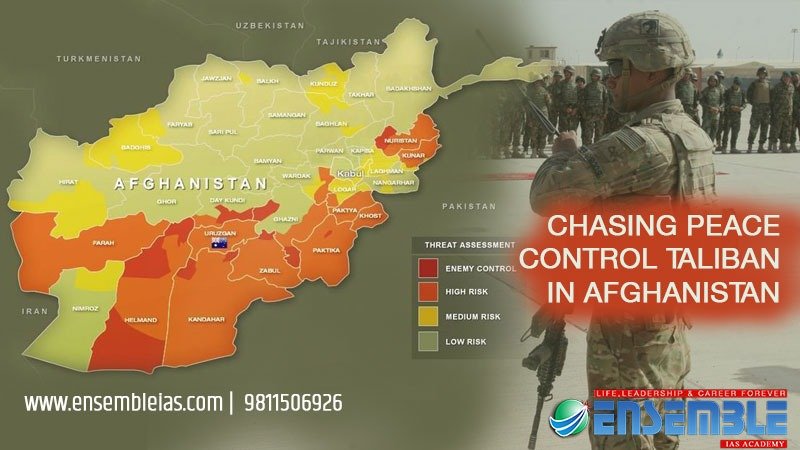The Taliban should not be allowed to have its way in talks on sharing power in Afghanistan
The peace conference hosted by Russia in Moscow between the Afghan government and Taliban representatives is the latest example of growing international concern about the future of Afghanistan as the May 1 deadline for the proposed U.S. troops pullout nears. No breakthrough was expected from a single-day conference between the parties that have been fighting each other for nearly 20 years. The Russian plan was to bring together the Taliban and the government, whose Doha peace talks have stalled for months, to jump start the peace process.
To buy our online courses: Click Here
The U.S. has also called for a UN-led multilateral peace conference. The Afghanistan conflict is a multifaceted one, with its primary actors being the government, the Taliban and the U.S. Others such as Russia, China and India are worried about the conflict’s spillover effects. There is a consensus among all these countries that Afghanistan needs to be stabilized now. U.S. President Joe Biden, who is reviewing the administration’s Afghan strategy, said this week that it would be “tough” to withdraw all U.S. troops by the May 1 deadline as the Trump administration agreed in an accord with the Taliban. On the other side, the Taliban have threatened to launch a new offensive if the U.S. does not leave according to the schedule. It is a stalemate.
Read More: General outreach
Mr. Biden’s dilemma is that he cannot commit troops endlessly to a war that the U.S. is certainly not winning. But if he pulls back without a peace agreement, the civil war could intensify, and the Taliban, already in control of much of rural Afghanistan, could make rapid gains. And if he decides to keep the troops even for a short term, it could trigger a tough response from the Taliban. So, the U.S. administration is trying to put together a new peace process, with other regional actors, which would not just buy time for the Americans but also seek to find a lasting settlement.
It seems Russia, China and India are on board. Pakistan, which hosts the Taliban leadership, will also participate in the peace process. The flip side of this diplomatic push is that all the main stakeholders agree that the Taliban would play a critical role in shaping Afghanistan’s future. The U.S. already wants the Afghan government to share power with the Taliban. Russia has asked the Afghan government and the Taliban to make “necessary compromises”.
The jihadist group, whose reign of Afghanistan during 1996-2001 was notorious for extremism, violence and suppression of basic rights, is on the cusp of power again. The international actors pushing for peace with the Taliban should at least extract compromises from them. After the Moscow meet, Russia, China, the U.S. and Pakistan said that a peace agreement should “include protections for the rights of all Afghans”. They should make it their top priority in the coming talks.




